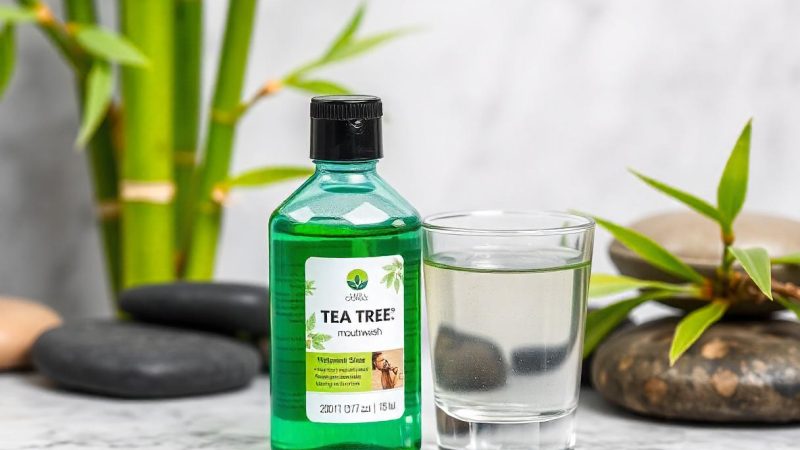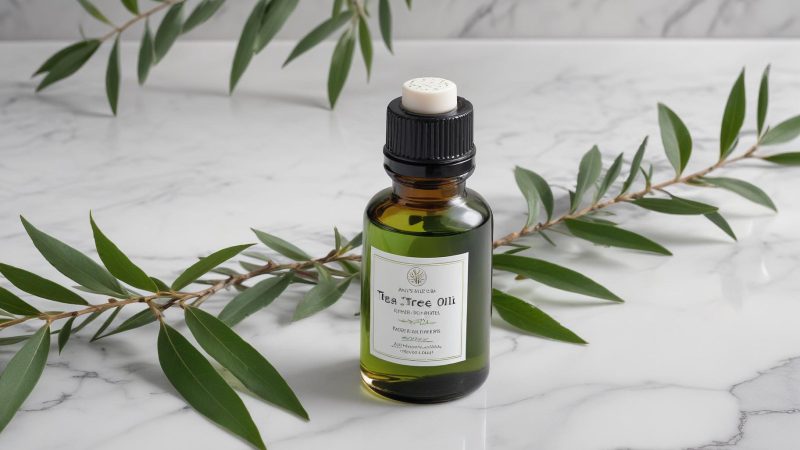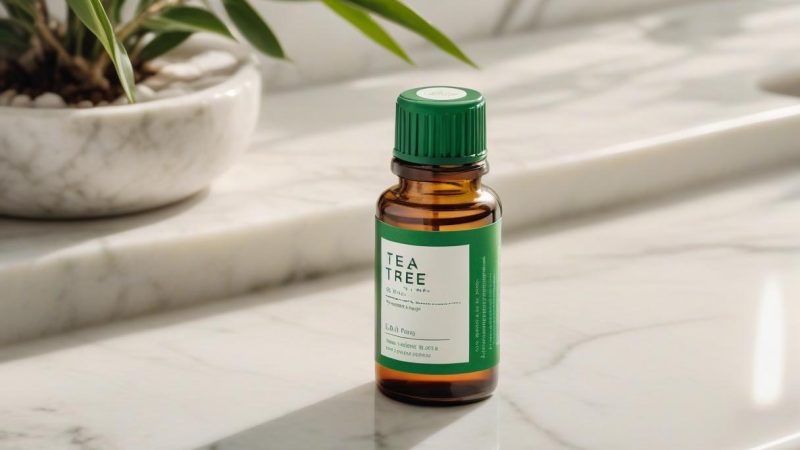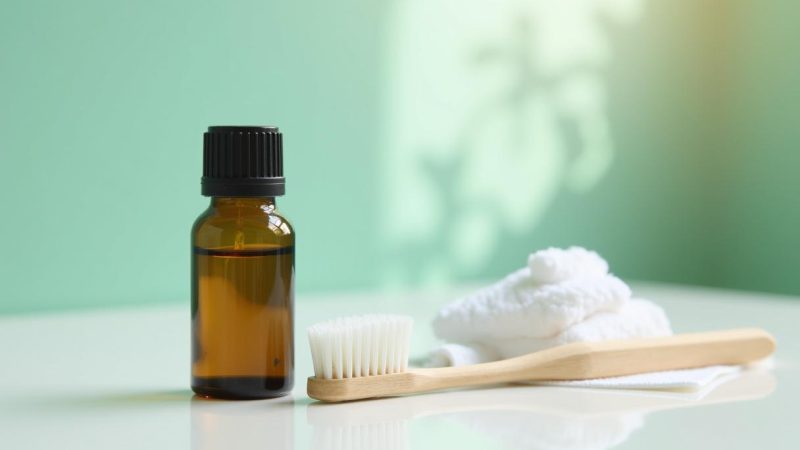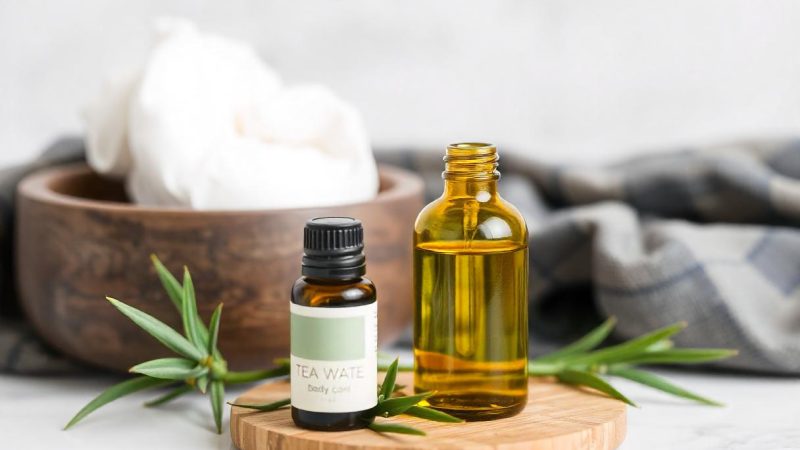Hand Sanitizer: Why Tea Tree Oil is the Ideal Natural Choice

In an era where hand hygiene has become more crucial than ever, the demand for effective hand sanitizers has surged. Traditional hand sanitizers often contain synthetic chemicals, which may not be ideal for those seeking natural alternatives. Tea tree oil, derived from the Melaleuca alternifolia tree, has emerged as an excellent natural choice for hand sanitizers due to its potent antimicrobial properties, skin benefits, and safety profile. This article explores why tea tree oil is an ideal ingredient for natural hand sanitizers, how it works, and how to use it effectively.
Why Tea Tree Oil is Ideal for Hand Sanitizers
- Powerful Antimicrobial Properties
Tea tree oil is renowned for its broad-spectrum antimicrobial activity. The oil contains several active compounds, including terpinen-4-ol, 1,8-cineole, and alpha-terpineol, which exhibit strong antibacterial, antiviral, and antifungal properties.
Research published in Clinical Microbiology Reviews highlights tea tree oil’s effectiveness against various pathogens, including Staphylococcus aureus and Escherichia coli, which are common contributors to infections. This antimicrobial efficacy makes tea tree oil a valuable ingredient in hand sanitizers, providing a natural alternative to chemical-based sanitizers.
- Effectiveness Against Viruses
Tea tree oil has also demonstrated effectiveness against certain viruses. A study in Journal of Antimicrobial Chemotherapy showed that tea tree oil could inhibit the replication of some viruses, contributing to its effectiveness as a component in hand sanitizers designed to combat viral pathogens.
- Skin-Friendly and Non-Irritating
Many conventional hand sanitizers contain alcohol and other chemicals that can dry out and irritate the skin. Tea tree oil, when used in appropriate concentrations, is generally well-tolerated by the skin and can even offer soothing benefits.
A review published in The Journal of Dermatology notes that tea tree oil has anti-inflammatory properties, which can help reduce skin irritation and inflammation. When combined with moisturizing agents, tea tree oil can maintain skin hydration while providing effective antimicrobial protection.
- Natural and Eco-Friendly
Tea tree oil is a natural, plant-derived ingredient, making it a more environmentally friendly option compared to synthetic chemicals. Its use in hand sanitizers aligns with the growing consumer preference for natural and sustainable personal care products.
How to Use Tea Tree Oil in Hand Sanitizers
- DIY Tea Tree Oil Hand Sanitizer Recipe
Creating a homemade hand sanitizer with tea tree oil is straightforward and allows you to control the ingredients. Here is a simple recipe:
Ingredients:
- 2 tablespoons of aloe vera gel
- 1 tablespoon of witch hazel or ethanol (for additional antimicrobial properties)
- 5-10 drops of tea tree oil
- 1-2 drops of essential oil (optional, for fragrance, e.g., lavender or lemon)
Instructions:
- In a small bowl, combine the aloe vera gel and witch hazel (or ethanol).
- Add 5-10 drops of tea tree oil.
- If desired, add a few drops of another essential oil for fragrance.
- Mix thoroughly until well combined.
- Transfer the mixture into a small, clean bottle with a pump or squeeze top.
Usage:
- Apply a small amount to your hands and rub together until dry.
- Use as needed, especially when soap and water are not available.
- Commercial Tea Tree Oil Hand Sanitizers
For those who prefer ready-made solutions, many natural personal care brands offer commercial hand sanitizers containing tea tree oil. When selecting a commercial product, look for hand sanitizers with a high percentage of active tea tree oil and minimal synthetic additives.
- Combination with Other Natural Ingredients
Tea tree oil can be combined with other natural ingredients to enhance the efficacy and skin benefits of hand sanitizers. For example, combining tea tree oil with essential oils such as lavender or eucalyptus can provide additional antimicrobial and soothing effects.
Safety and Precautions
- Dilution and Sensitivity
Tea tree oil should be used in appropriate concentrations to avoid skin irritation. The recommended concentration for hand sanitizers is typically between 1-2% tea tree oil. Always perform a patch test before using a new product extensively to ensure that you do not have a sensitivity or allergic reaction.
- Avoiding Contact with Eyes and Mucous Membranes
Tea tree oil should not come into contact with the eyes or mucous membranes. If accidental contact occurs, rinse thoroughly with water. Keep hand sanitizers away from the face and sensitive areas to prevent irritation.
- Consulting a Healthcare Provider
If you have sensitive skin, allergies, or any underlying skin conditions, consult with a healthcare provider before using products containing tea tree oil. This is especially important if you plan to use it frequently or have any concerns about its suitability for your skin type.
- Alcohol Content and Efficacy
In homemade hand sanitizers, the alcohol content (from witch hazel or ethanol) contributes to the overall antimicrobial effectiveness. Ensure that the final product has a sufficient alcohol concentration to meet recommended hand sanitizer standards, which typically require at least 60% alcohol for effectiveness.
Final Thoughts
Tea tree oil offers a natural and effective alternative for hand sanitizers, combining powerful antimicrobial properties with skin-soothing benefits. Whether used in DIY formulations or found in commercial products, tea tree oil can enhance hand hygiene while providing a more natural and environmentally friendly option compared to synthetic chemicals.
Incorporating tea tree oil into hand sanitizers can support effective hand hygiene and align with a natural skincare approach. Always adhere to safety guidelines, ensure proper dilution, and consider consulting with a healthcare provider for personalized advice.
Sources:
- Clinical Microbiology Reviews. (2006). Antimicrobial properties of tea tree oil and its clinical applications.
- Journal of Antimicrobial Chemotherapy. (2000). The antiviral effects of tea tree oil.
- The Journal of Dermatology. (2000). Skin benefits and safety of tea tree oil.
- International Journal of Cosmetic Science. (2007). Tea tree oil as a natural alternative in personal care products.

